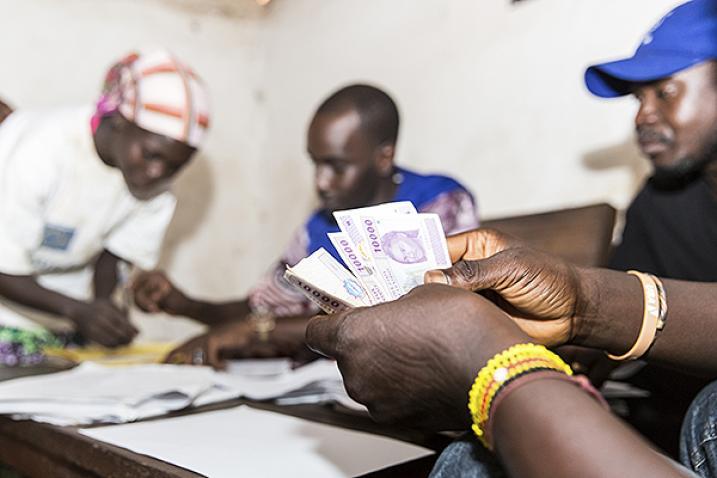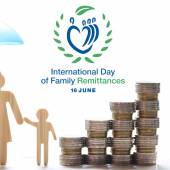International Day of Family Remittances

Despite the negative economic impacts of the COVID-19 pandemic, family remittances worldwide have proved to be much more resilient and dependable than expected. This is mainly because of the sacrifice of migrants who have “put the needs of their families first, curtailing personal consumption and drawing on savings.”
United Nations Secretary-General Antonio Guterres made the observation in his message for the UN International Day of Family Remittances. The annual day was adopted by the UN General Assembly and is observed on June 16.
Guterres noted that COVID-19 has been a formidable test for global family remittances. A May 2021 report by the World Bank shows that although no growth was recorded in 2020, the flow of global remittances remained practically the same at $540 billion, with only a marginal drop of 1.6% below the 2019 total.
Support for migrants
Apart from the sacrifice of migrant workers, another reason for the resilience of remittances, Guterres pointed out, has been the fiscal measures in host countries, which also made it possible for migrants to send money home. He thus urged all to “continue efforts to support and protect migrants, who — as the COVID-19 pandemic has made clear — play such an important role in keeping essential services and the economy at large running in many parts of the world.”
An important step in this regard is ensuring that “all migrants, regardless of legal immigration status, are included in COVID-19 vaccine distribution plans", which "is critical for the health and safety of all.”
Lowering transfer costs
The UN chief also urged all stakeholders to continue efforts to reduce the costs of transferring remittances — a lifeline in the developing world — to as close to zero as possible in line with the 2030 Agenda for Sustainable Development and to foster the financial inclusion of migrants and their families, especially in poor rural areas. In this regard, he said, “the Global Compact for Safe, Orderly and Regular Migration offers a unified framework for such actions”.
Digital infrastructure in rural areas
Meanwhile, the UN’s International Fund for Agricultural Development (IFAD) pointed out that despite a massive increase in migrants sending money home via digital transfers due to the COVID-19 pandemic, millions of their families and rural and remote areas struggle to access mobile banking services which could help lift them out of poverty.
IFAD, which works in developing countries to eliminate poverty, hunger and malnutrition among poor rural populations, pointed out that mobile remittances increased by 65 per cent last year, rising to US$12.7 billion. This change was driven by a switch from cash to digital transfer.
However, it noted that people in remote rural areas in many countries have scant access to banking services, limited mobile connectivity or availability of agents offering mobile money services such as payouts in cash. This means millions of poor, rural people have to travel long distances to towns or cities, often at significant cost, to receive the cash sent digitally by their migrant family members.
Thus, in a separate message for the International Day of Family Remittances IFAD president, Gilbert F. Houngbo called for urgent investments in digital infrastructure and mobile services in developing countries to ensure rural families are not left behind. He called on governments and the private sector to urgently invest in rural digital infrastructure to help rural communities access cash outlets or even more convenient alternatives such as mobile money accounts.
Family remittances worldwide
Every year over 200 million migrant workers send remittances to support over 800 million relatives in low- and middle-income countries. Family remittances of over a trillion dollars every year directly impact the lives of more than 1 billion people or one out of seven individuals on earth.
Added together, remittances are three times greater than Official Development Assistance and surpass Foreign Direct Investment. In 2019, there were approximately 200 million migrant workers providing essential services to important economic sectors in more than 40 high-income countries and sending needed financial resources to support an estimated 800 million relatives living back home in more than 125 countries. Almost half of those families live in rural areas, where remittances “count the most.””
Half of the $1 trillion dollars remitted annually goes to rural areas. Many use the money for basic essentials like food, education and healthcare. Almost 25% is invested in family entrepreneurship. Remittances are crucial for more than 70 countries of the world, as these funds contribute at least 4% to their GDP. In some countries, remittances proved far more resilient and recorded a high, such as in Pakistan, Mexico, Bangladesh Kenya and Jamaica. - Vatican News
Radio Veritas Asia (RVA), a media platform of the Catholic Church, aims to share Christ. RVA started in 1969 as a continental Catholic radio station to serve Asian countries in their respective local language, thus earning the tag “the Voice of Asian Christianity.” Responding to the emerging context, RVA embraced media platforms to connect with the global Asian audience via its 21 language websites and various social media platforms.












